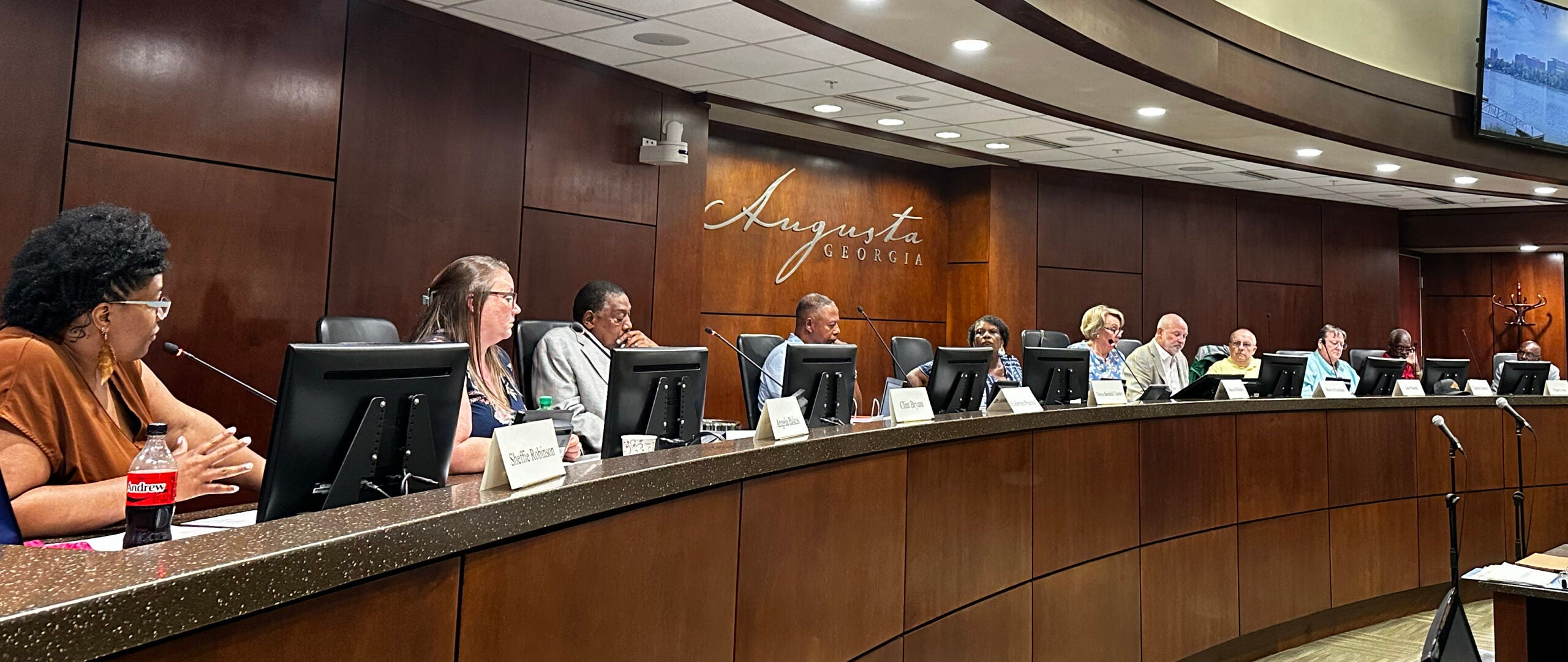Augusta’s Charter Review Committee looked at forms of government and government finance in an eighth meeting this week. The committee hasn’t made any big decisions yet other than procedural matters.
The committee is charged with recommending revisions to the city’s governing document. Thursday the public traded ideas with the committee at a public hearing.
Many local governments are run by a council (commission) and manager or mayor and an administrator. Augusta’s arrangement is “a bit more messy,” with an administrator who can’t hold department heads accountable but reports to the commission, said Rex Facer II, who is assisting the committee.
“As a result, it’s really the commission that’s making all the decisions,” said Facer, who’s with the Carl Vinson Institute of Government at the University of Georgia.
While the labels are often used interchangeably, the main distinction between a manager and an administrator is the level of authority they have, he said. Managers, who are common in midsized cities such as Augusta, tend to be trained professionals with hiring and firing authority, he said.
Research suggests the manager form is “more efficient,” Facer said.
Other matters the committee discussed Thursday included asking Facer to research ways to add ethics to the charter and asking attorney Jim Plunkett to research at-large voting.
Committee Chair Marcie Wilhelmi said at-large voting, with candidates living in districts but elected citywide, is a direction the committee is considering.
The system is used in some cities but has been replaced in others to avoid diluting the voting strength of minority groups.
In another matter, the committee voted down a motion from member Sheffie Robinson to require a two-thirds majority to pass a measure, or eight out of 11 votes. Current bylaws require just six of 11.
Two-thirds is the same percentage required to amend the U.S. and Georgia constitutions, Robinson said. It’s also what the consolidated government’s original charter calls for to amend it.
“The commission-council shall have the authority upon the affirmative votes of two-thirds of those elected to the commission-council, excluding the chairperson-mayor, to change the provisions of this Act,” it says.
A vote to again change the meeting schedule – to hold two subcommittee meetings, rather than one, on the day of each regular two-hour meeting – raised some ire.
Committee member Angela Bakos said it means members may have to sit for nearly seven hours straight, which may be challenging for individuals with certain health conditions. Bakos said a fellow committee member urged those not up for it to drop out.
The committee voted 7-4 to return to having the three meetings when members meet every other Thursday, with the subcommittees held back-to-back.
The Finance Subcommittee, which met Thursday, continued to scratch the surface of its uncertain charge, deciding to seek information about types of audits but unsure where to get it. Chairman Lee Powell has suggested adding an audit department to the new government.
Member Clint Bryant said the institute seemed like the ideal source of information. “We are paying the Carl Vinson Institute,” he said. “We can ask that they provide us the educational piece.”
Former Mayor Hardie Davis, who was on the morning agenda to address the committee, did not attend the meeting.











